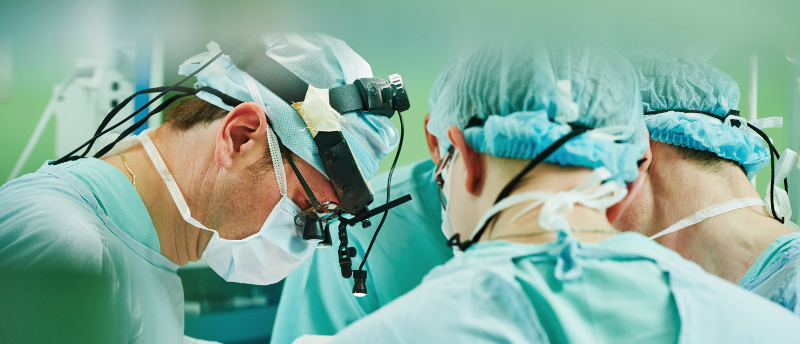Why People Are Suing Sorin Over 3T Heater-Cooler Devices

Most people probably have never heard of Sorin Group, a medical device company that started in Italy but through multiple acquisitions and mergers is now part of the larger U.K. company LivaNova PLC. In recent years, however, the United States arm of the company has been under fire for its role in postoperative bacterial infections.
The problems have been traced back to contaminations from a type of medical device used to regulate blood and body temperature during open-heart surgeries - Sorin Stöckert 3T Heater-Cooler devices. As a result, dozens of people are filing lawsuits against Sorin Group USA and its parent company, Sorin Group Deutschland GMBH in Germany, claiming that the company should've done more to prevent these deadly infections.
How Did Heater-Cooler Devices Become Contaminated?
One of the big questions asked by medical professionals and government agencies like the Centers for Disease Control and Prevention (CDC) and the U.S. Food and Drug Administration (FDA) is: How did these critical medical devices become infected with life-threatening bacteria?
The LivaNova factory seems a likely source for cardiothoracic surgery-related severe M chimaera infections diagnosed in Switzerland, Germany, the Netherlands, the UK, the USA, and Australia.
The LancetWhile there are no definitive determinations yet, one theory is that they were infected during the manufacturing process. This was the conclusion of a study published in the medical journal The Lancet: Infectious Diseases, which analyzed strains of Mycobacterium chimaera - the primary species of bacteria involved in most of these infections - from Switzerland, Germany, the Netherlands, the UK, the USA, and Australia. The study's authors agreed that the most likely source of the contamination was the LivaNova factories where the devices were manufactured, that is, in Germany under Sorin Group Deutschland.
While The Lancet's study indicates the mostly likely source of infection, the FDA has identified a number of other potential infection scenarios related to the design and usage of Sorin 3T devices. According to the FDA safety communication, these include:
- Faulty filters: The air and water filters on 3T heater-cooler systems have been criticized as not adequately preventing bacteria from escaping into the sterile environment of the operating room.
- Cooling water tanks: Water-filled cooling tanks have also been implicated as places where deadly mycobacteria can grow. If contaminated water is spilled, sloshed, or otherwise distributed, bacteria can get on clothes, gloves, surgical tools, etc. and cause an infection.
- Airflow problems: The area above a patient undergoing open-heart bypass surgery is often sterilized using a technique known as "laminar airflow." The FDA suggests that the fans and exhaust vents on heater-cooler devices could interrupt this airflow, allowing bacteria to enter the incision.
Regardless of how bacteria might enter a person's body, all of these issues should have been tested against and prevented by Sorin Group. The fact that the company allowed its 3T heater-cooler units to ship with such serious design flaws makes the company liable for the extended hospital stays, expensive treatments, and even deaths caused by these infections.
What to do if you get an infection after heart surgery
Hospitals in Iowa, Pennsylvania, South Carolina and other states have notified thousands patients about the possibility of NTM infections after receiving an open-heart surgical procedure. If you or a loved one received one of these notices, what should you do?
The first thing to do, of course, is to get your infection treated as soon as possible. The type of bacteria that causes these infections, known as nontuberculous mycobacteria or NTM bacteria infections, grows slowly over time, and it can take months for the infection to develop. Because of this, people often may not realize that the NTM infection is a result of the surgery they had previously, and they might think their illness and pain is due to other factors.
If you start experiencing even mild symptoms, such as night sweats, muscle pains or aches, and general fatigue after undergoing open-chest surgery, it's important to get checked out right away. And if you start having more serious symptoms like unexplained weight loss, coughing up blood, or inflamed lymph nodes, then go to the hospital right away.
